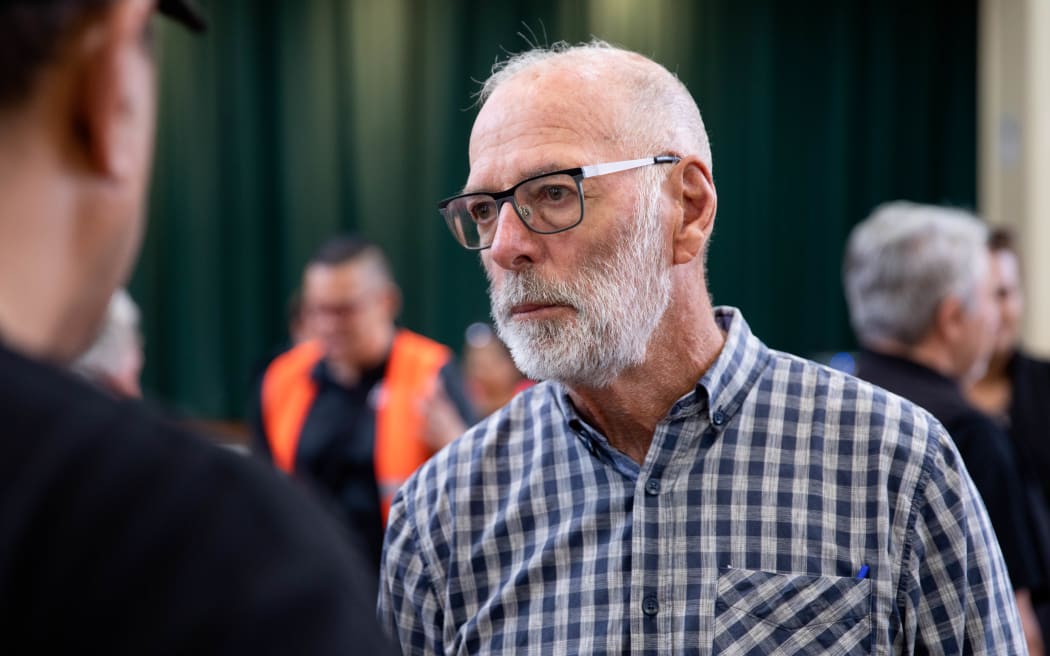Wayne Brown admits he's not a smooth talker, but how important is it for leaders to get in front of the media in a crisis?

Photo: RNZ/Angus Dreaver
As a new storm threatens Auckland the big question is: can Wayne Brown get the message right this time?
In the space of two weeks, the embattled mayor has gone from being defensive and in denial over his poor handling of the flooding crisis, to apologetic and full of praise for Aucklanders in their clean-up efforts.
But the way he's communicating that message is not via the usual press conferences expected in a state of emergency, but by recorded video announcements.
The release of the first video on YouTube, seven days after the state of emergency was announced, surprised Stuff's Todd Niall.
"It does sound as though this recorded video is, in the interim, the way that we're going to hear from the mayor in the media," he says.
It means no media interaction, no awkward answers to difficult questions at press conferences or in live interviews - giving the mayor and his office full control.
"You can't get around the fact that it is a politician reading a written statement to a camera," says Niall.
The strategy is unheard of in New Zealand for a politician at that level, he says, and risks becoming the norm if it continues.
"It's by no means normal and it's by no means the way a politician at that level should be interacting for very long with the media and communicating with the public."
Niall explains to The Detail why communication by a city leader during a crisis is so crucial. He looks at the first few days of the state of emergency and how it was handled by Brown and the mayoral team, and how they have struggled since then to get onto a positive, more proactive front.
In the recorded video messages, Brown has outlined the 'big Auckland clean up', led by deputy mayor Desley Simpson, acknowledged the efforts of the communities and emergency services, and explained how he will play a lead role in the 'big fix up'. He has also turned up to post-flood community events without telling the media. Niall says these efforts fall short of the traditional ways that a politician will deal with the public and the media in a crisis.
The Detail also looks at the role of Brown's advisors with PR consultant, Chamanthie Sinhalage-Fonseka from Baldwin Boyle.
She says it takes "balls of steel" to manage some leaders.
"We do have to hold up a mirror and sometimes that mirror isn't what the leadership expected. They're hard pills to swallow and some of the best PR people I've seen are able to give really hard truths to their bosses, clients, whoever, in a way that doesn't damage the relationship," Sinhalage-Fonseka says.
She saw communications failures across the board on that memorable Friday two weeks ago, from Auckland Transport's message to Elton John concert goers, to Waka Kotahi's goodnight signoff in the midst of the flood chaos, to Auckland Airport's shutdown.
"Social media around the world has become the number one channel for any crisis communication between officialdom and the people."
Brown's apology in the recorded message, she says, will be seen as a line in the sand but it will also be judged when the city is on the brink of the next crisis.
"An apology sets a whole new standard that people are now entitled to hold you to."
Listen to the full podcast episode for more on how leaders should respond in times of crisis.
You can find out how to listen to and follow The Detail here.
You can also stay up-to-date by liking us on Facebook or following us on Twitter.

Photo:


